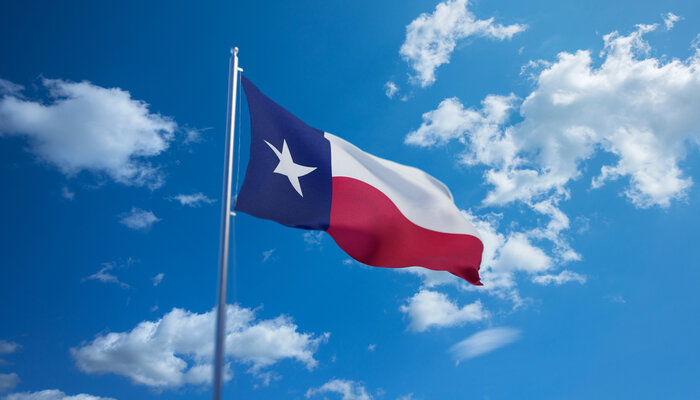Update 10/15/24: Two weeks after blocking the portion of Texas’s restrictive voting law that effectively criminalized door-to-door canvassing for ballot measures, a federal judge ruled that five additional provisions targeting voter assistance violate the Voting Rights Act.
The decision significantly impacts voters with disabilities, limited English proficiency, and literacy issues, as well as those who assist them. For example, under Senate Bill 1, vote assisters were required to swear “under the penalty of perjury” that a voter qualifies to receive help. This portion of the law meant that voters could be required to disclose personal information, such as private health information, to receive assistance. The bill also made compensated voter assistance a crime, which the court noted puts voters at risk of criminal penalties for even offering assisters a trivial token of appreciation, like cookies or iced tea.
The penalties established by S.B. 1 hampered vote assisters and meant the difference between casting a ballot and staying home for those who needed help. “Every time you put even one little road bump or one little barrier in front, it just makes it that much harder, and so you don’t do it,” Toby Cole, a voter in Harris County with a disability, testified at trial in the lawsuit challenging the law.
With Election Day less than a month away, the judge decided not to require changes to the state’s voter assistance forms, which will still include S.B. 1’s requirements and the oath for vote assisters. The judge’s ruling, however, immediately stops all criminal enforcement of the provisions that deterred vote assisters out of fear of criminal prosecution.
On Monday, the Fifth Circuit Court of Appeals granted a stay on the district judge’s initial ruling on the law’s canvassing provision. Texas has already indicated that it plans to seek a stay of the district court’s ruling on the voter assistance provisions as well. If that request is granted, voters, assisters, and canvassers will go through yet another election in Texas subject to rules that a federal court has found to violate both the Constitution and the Voting Rights Act.
A federal judge on Saturday struck down a portion of a 2021 Texas law for interfering with voter canvassing and education efforts. The controversial legislation, Senate Bill 1, is one of a torrent of restricting voting laws enacted around the country since the last presidential election.
In a 78-page ruling, Judge Xavier Rodriguez nullified a section of the law that imposed criminal penalties on organizers and volunteers who received “compensation or other benefit” for so-called “vote harvesting services.” That term often refers to illegally collecting and delivering mail ballots on behalf of voters and is often invoked to imply election fraud. Under the challenged provision, any advocacy for ballot measures or candidates in the presence of a mail ballot qualified as “vote harvesting,” yet the provision did not define compensation or make clear what constitutes being “in the presence of” a mail ballot.
The judge concluded that the provision violates the 1st and 14th Amendments for burdening protected speech and for being unconstitutionally vague.
“Plaintiffs are uncertain whether providing volunteers food, beverages, gas cards, bus fare, letters of recommendation, or academic credit to volunteers for their advocacy work is unlawful because 'compensation’ is not defined in the Election Code and benefit is merely defined by a synonym,” he wrote.
The provision effectively hamstrung the ability of nonpartisan voter outreach organizations and their volunteers to engage with people who want to vote by mail, who often tend to be older and have disabilities, out of fear of prosecution. And the law created a particularly high risk for organizations serving non–English speaking communities, as they are often asked to provide assistance translating ballots.
That fear turned into a reality in August when Texas Attorney General Ken Paxton (R) ordered raids into the homes of multiple members of the League of United Latin American Citizens, the country’s oldest Hispanic civil rights organization, for alleged “vote harvesting.”
The court concluded that this part of the law was so confusing and broad that it could even potentially expose voters to criminal liability. “This ambiguity has chilled Plaintiffs’ willingness to conduct in-person community events and political outreach to voters where a mail-in-ballot might be present,” Rodriguez wrote.
In Texas, those involved in nonpartisan voter outreach and knowingly engaged in so-called “vote harvesting” could be charged with a third-degree felony and spend up to 10 years in prison or fined up to $10,000.
The ruling immediately halts any investigation into alleged “vote harvesting,” including those pursued by the state attorney general.
The decision also represents a setback, albeit minor, for proponents behind the push for voter suppression legislation since the 2020 election. S.B. 1 is one of 63 restrictive voting laws enacted since 2020 that will be in effect for the 2024 election. Laws making it harder to vote in recent years are often justified as countering widespread voter fraud, which is vanishingly rare. As a result, in this year’s election, millions of voters in more than half of the country will encounter new barriers for the first time.
Beyond hampering voter outreach efforts, S.B. 1 triggered fears of prosecution for election administrators and workers for other vague rules. The law also disproportionately harms people of color by curbing voting access as well as people with disabilities or those with limited English proficiency by making it harder for voters to receive assistance when casting a ballot.
At trial last fall for the lawsuit challenging multiple provisions of the law, the district court heard from a diverse set of some 80 witnesses that included voters, election workers, community groups, civil and voting rights organizations, and faith-based groups represented by the Brennan Center, the Mexican American Legal Defense and Educational Fund, and other attorneys.
While the court has yet to weigh in on the other challenged portions of the law, this ruling marks a significant victory for voters. Paxton announced on Monday he will appeal the decision.



